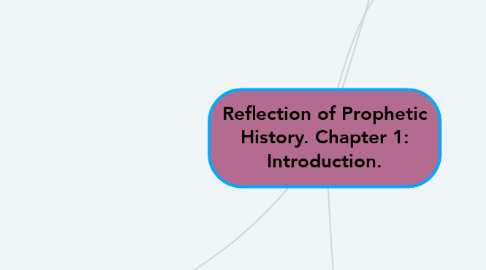
1. The Arab Peninsula.
1.1. The Arab penisula was far from such influences and it was even untouchable by the expansion of Rome colonialism and Christianity.
1.1.1. Gigantic power of memory
1.1.1.1. Another aspect of the selection of Arabia is due to the fact the environment where this religion emerged through the appointment of the Prophet (PBUH), it was here known as ummi (illiterate) in the sense that this location was untouchable by other civilization.
1.1.1.2. There must be another reason behind the appointment of the Prophet as an illiterate person, if the Prophet (PBUH) was known as knowledgeable person who was able to read the books of previous nations, then, people may come to the accusation that his teaching is an extension of experimental civilization and philosophical thought which give the compliment to his new religion.
1.1.2. The position of Ka'abah.
1.1.2.1. First, Allah SWT declares in the Quran that MAkkah is the place of bayt al-haram as the first and lasting center of ritual servce in response to the call of Prophet Ibrahim to rise up the last Prophet (PBUH) who propagates the religion to all parts of the world.
1.1.3. Centrality of Arabia.
1.1.3.1. Second, Allah had decided that Arabia suitable due to the fact that its lcocation is strategic to reach other parts of the world.
1.1.4. Unity of language
1.1.4.1. All the tribes of Arab speak the same language - Arabic language although they have different slangs and accents.
1.1.4.2. Out of all Arabian accents, the Quraishittes accent is the most understandable one among the Arabs.
1.1.5. Abraham's Prayer to Allah
1.1.5.1. "O our Lord, raise among them a Messenger of their own who shall rehease to them the messages and instruct them in the Book and the Wisdom, and purify them"
2. Arabian Peninsula: Significance of its selection for raising the last Prophet (PBUH).
2.1. Birthplace of the Heavenly religion:
2.1.1. To clarify the issue we have to learn about the characters of Arab before Islam and the geographical of Arabia and other areas such as Persia, Rome, Greek and India which include their characters of tradition and civilization.
2.1.2. At the time of advent of Islam, the world was dominated by two blocks Persia and Rome and another block was in the hand of Greek and India.
2.1.2.1. Persia and Magus
2.1.2.1.1. Persia represented the birthplace of different conflicting religions such as Zoroastrianism which was followed by the upper class rules. The philosophy of that religion is to give preference of marriage between a person with his mother, daughters or sons.
2.1.2.1.2. Apart from that, there was a religion under the name of Magus which allows a woman to be collectively owned by many people.
2.1.2.2. Greek and India
2.1.2.2.1. Greek was full of myths and philosophical thoughts which brought about disadvantageous.
2.1.2.2.2. India suffered from moral crisis because of their adherence to the religion mainly emerged at the beginning of sixth century.

